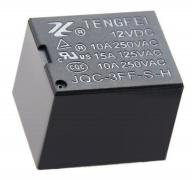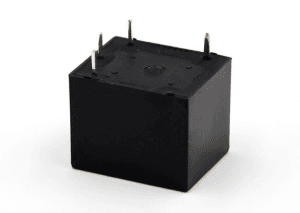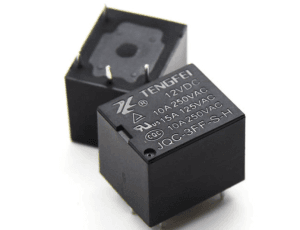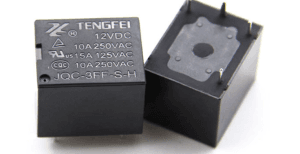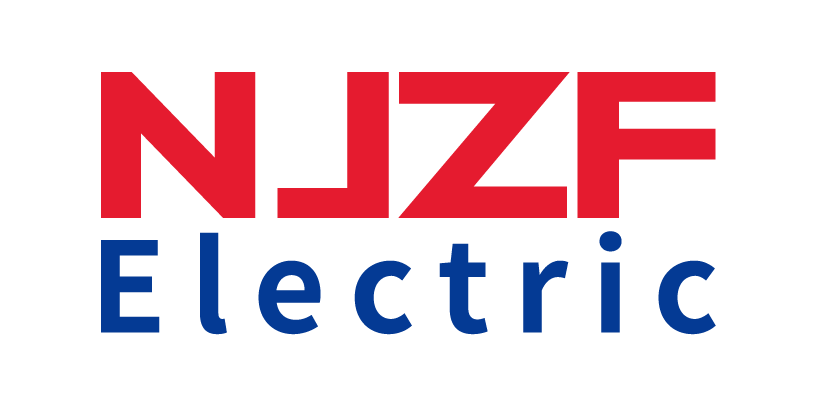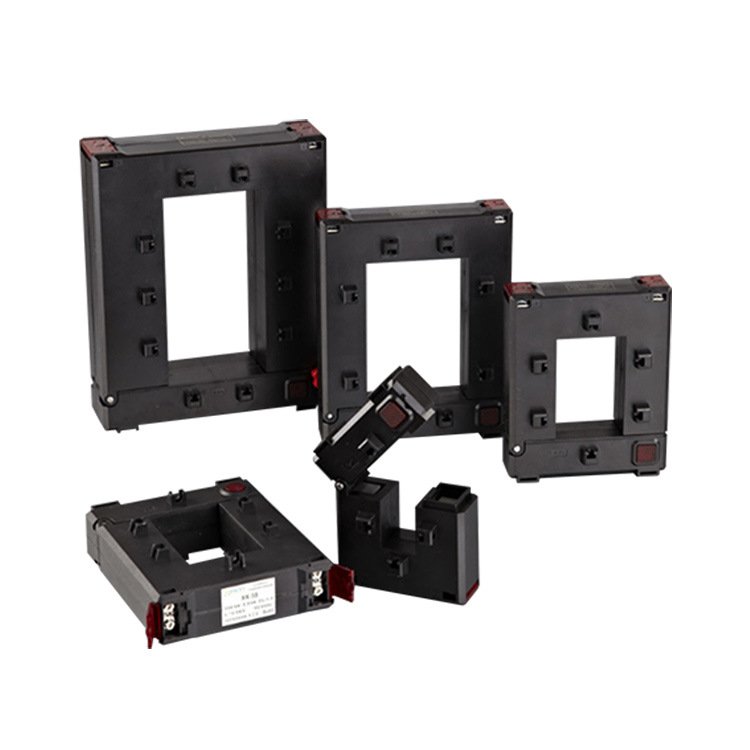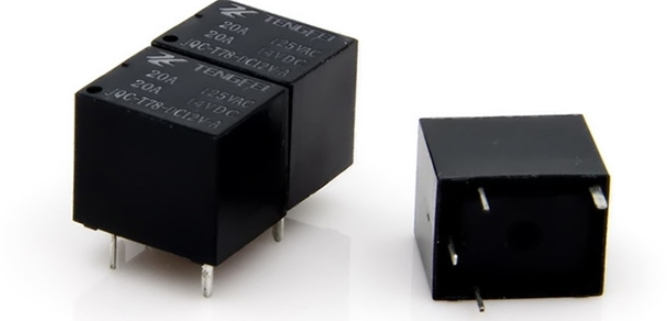1$ per unit
A relay is an electrically operated switch. It consists of a control circuit and a load circuit. When a small electric current passes through the control circuit, it can cause the relay to close or open the contacts in the load circuit. This allows a relatively small electrical signal to control a much larger current or voltage in another circuit. Relays are widely used in various electrical and electronic systems. For example, in industrial control systems, they can be used to start or stop motors. In automotive electronics, relays are often used to control high power components such as headlights and horns. They play an important role in ensuring the normal operation and safety of electrical equipment.
- 20Aswitching capability
- Smallsize auto relay
- Size15.7mm×12. 3mm×14mm(length*width*high)
COIL DATA ( at 20℃ )
| Nominal Voltage (VDC) | 5 | 6 | 9 | 12 | 24 | |
| Coil Resistance (Ω±10%) | 70 | 100 | 225 | 400 | 1600 | 0.36W |
| Rated Current (mA) | 71.4 | 60 | 40 | 30 | 15 |
| Max Operate Voltage (VDC) | 3 . 75 | 4.5 | 6.75 | 9 | 18 |
| Min Release Voltage (VDC) | 0 .40 | 0 .48 | 0 .72 | 0 . 96 | 1 . 92 |
| Coil Resistance (Ω±10%) | 42 | 60 | 135 | 240 | 960 | 0.6W |
| Rated Current (mA) | 119 | 100 | 66 .7 | 50 | 25 |
| Max Operate Voltage (VDC) | 3 . 25 | 3 . 9 | 5 . 85 | 7. 8 | 15 . 6 |
| Min Release Voltage (VDC) | 0 .40 | 0 .48 | 0 .72 | 0 . 96 | 1 . 92 |
| Coil Resistance (Ω±10%) | 31 | 45 | 100 | 180 | 720 | 0 . 8W |
| Rated Current (mA) | 161 . 3 | 133 . 3 | 88 . 9 | 66 .7 | 33 . 3 |
| Max Operate Voltage (VDC) | 3 . 25 | 3 . 9 | 5 . 85 | 7. 8 | 15 . 6 |
| Min Release Voltage (VDC) | 0 .40 | 0 .48 | 0 .72 | 0 . 96 | 1 . 92 |
| Max Applicable Voltage | 130% of rated voltage at 70 ℃, 170% of rated voltage at 23 ℃ |
CONTACT DATA
| Contact Form | 1H/1Z/1B |
| Contact Material | Silver Alloy |
| Load | Resistive load(COS Ф =1) |
| Contact Ratings | 20A 125VAC 20A 14VDC |
| Minimum load | 100mA 5VDC |
| Max Switching Voltage | 250VAC/14VDC |
| Max Switching Current | 25A |
| Max Switching Power | 2500VA/280W |
| Contact Resistance | 100mΩMax at 6VDC 1A |
| Life Expectancy | Electrical : 100,000 Operations(at30Operations/minute) |
| Mechanical : 10,000,000 Operations(at300Operations/minute) |
CHARACTERISTICS DATA
| Insulation Resistance | 100MΩMin at 500VDC |
| Dielectric Strength Between Open Contacts | 500VAC(for one minute) |
| Between Contacts and coil | 500VAC(for one minute) |
| Operate Time | 10ms |
| Release Time | 5ms |
| Temperature Range | -40℃ to+85℃ |
| Shock Resistance | Operating Extremes : 10G |
| Damage Limits : 100G |
| Vibration Resistance | 10-55Hz, 1.5mm |
| Max. switching frequency | Mechanical:18,000operations/hr |
| Electrical:1,800operations/hr |
| Humidity | 35-85% |
| Weight | Approx 6g |
Key Features of Automotive Relays:
High Current and Voltage Capacity: Automotive relays are engineered to switch high currents (typically ranging from a few amperes to over 100 amperes) and withstand voltages commonly found in automotive electrical systems (up to 24V or even higher in some cases).
Compact Design: Given the limited space within vehicles, automotive relays are designed to be compact and lightweight, allowing them to be easily integrated into the vehicle’s wiring harness and control systems.
Durability and Reliability: Automotive relays must endure extreme temperatures, vibrations, and other environmental factors. They are built with robust materials and undergo rigorous testing to ensure long-term reliability and durability.
Electromagnetic Operation: Most automotive relays work on the principle of electromagnetism, where an electromagnet is activated by a low-current control circuit to open or close a set of contacts that handle the high-current load.
Protected Contacts: The contacts within the relay are often coated with precious metals to resist welding and corrosion, extending the relay’s lifespan and ensuring smooth, consistent operation.
Benefits of Using Automotive Relays:
Isolation and Safety: By isolating the low-current control circuit from the high-current load circuit, relays provide a safer way to control electrical systems, reducing the risk of shorts, fires, or damage to sensitive components.
Energy Efficiency: Relays help optimize energy usage by allowing precise control over when and how electrical systems are powered, reducing unnecessary energy consumption and extending battery life.
Flexibility and Versatility: Automotive relays can be configured to switch single or multiple circuits, making them versatile for a wide range of applications, from simple lighting control to complex engine management systems.
Diagnostic Capabilities: Many modern automotive relays incorporate diagnostic features, such as LED indicators or built-in fault detection, that make it easier for technicians to identify and troubleshoot issues.
Applications of Automotive Relays:
Lighting Systems: Controlling headlights, taillights, turn signals, and other exterior lighting.
Engine Management: Managing fuel injection, ignition timing, and other critical engine functions.
Comfort and Convenience Features: Operating power windows, door locks, seat heaters, and air conditioning systems.
Safety Systems: Activating airbags, ABS brakes, and other active safety features.
Auxiliary Systems: Controlling accessories like sound systems, GPS navigation, and aftermarket electrical devices.
In summary, automotive relays are indispensable in the modern automotive landscape, playing a crucial role in the safe, efficient, and reliable operation of vehicles. With their ability to handle high currents, compact design, durability, and versatility, automotive relays continue to evolve to meet the increasing demands of advanced automotive technology.
